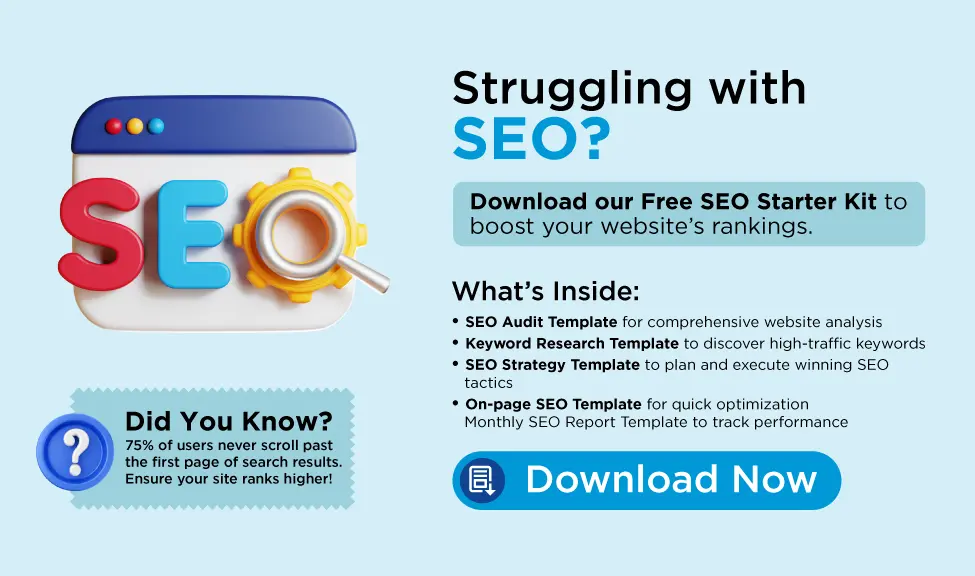Recap of the Google Algorithm Updates in 2024 and How to Plan for 2025
Read MoreMastering the complexities of digital advertising, especially the vast terminology, is one of the major challenges in the industry. Even experienced advertisers often mistakenly use "keyword" and "search term" (or "search query") interchangeably. Though these terms are essential to PPC advertising and closely related, they have distinct meanings.
Thus, understanding the difference between keywords and search queries is crucial for optimizing online content and improving SEO strategies. While these terms are often used interchangeably, they refer to distinct concepts that play unique roles in the process of driving traffic to websites. Let's explore the key differences and why they matter in your marketing efforts.
Key Takeaways:-
- Keywords vs. Search Queries: Keywords are marketer-defined; search queries are user-entered terms.
- SEO Role: Keywords optimize content; search queries reveal user intent.
- Combined Strategy: Use both to better align content with user searches.
- Enhanced Results: Optimizing both boosts visibility and targeted traffic.
What Are Keywords?
Keywords are specific words or phrases that marketers and content creators identify as essential for their website or content. These terms are chosen based on their relevance to the products, services, or information that the business offers. Keywords are strategically embedded in website content, metadata, and advertising campaigns to improve visibility on search engines. For example, if you run a digital marketing agency in Dubai, you might target keywords like "SEO services in Dubai" or "digital marketing in UAE." These keywords help search engines understand the content of your site, allowing them to match it with relevant search queries entered by users.

What Are Search Queries?
Search queries, on the other hand, are the actual terms or phrases that users type into a search engine like Google when looking for information. Unlike keywords, which are predefined by marketers, search queries are dynamic and reflect the user's intent at a specific moment. A user might enter a search query like "best SEO agency in Dubai" or "how to improve my website's ranking." These queries can vary widely and often include long-tail phrases or questions that aren't necessarily targeted keywords but are closely related to them.
Keywords vs. search terms
The difference between keywords and search queries lies in their origin, intent, and variability. Keywords are predefined by marketers based on research and relevance to the business, while search queries are generated by users based on their immediate needs or curiosity. Keywords are used to optimize content and align it with potential search queries, while search queries reflect the user's intent and can vary significantly in form and specificity. Keywords are often shorter and more general, though long-tail keywords can also be used, whereas search queries can be long, complex, and highly specific, including questions or colloquial language.
Why the Difference Matters
Understanding this difference is crucial for creating effective SEO strategies. By focusing solely on keywords, you might miss opportunities to capture traffic from less obvious search queries. Conversely, analyzing search queries can provide insights into how users think and what they are truly searching for, allowing you to refine your keyword strategy. This deeper understanding enables you to craft content that resonates more effectively with your audience’s actual needs and interests. It also helps in identifying emerging trends and adapting your SEO approach accordingly, ensuring that your content remains relevant and competitive. By integrating both keywords and search queries into your strategy, you can enhance your website's visibility, drive more targeted traffic, and ultimately achieve better results from your SEO efforts.
Optimizing for Both
To fully optimize your content, it's essential to bridge the gap between keywords and search queries. Tools like Google Search Console allow you to analyze the actual queries that are bringing users to your site. This data can help you refine your keyword strategy to better align with user intent. Since search queries are often longer and more specific, incorporating long-tail keywords into your content can help capture this traffic. Beyond just inserting keywords, it's important to consider the user's intent behind their search queries. Tailoring your content to answer questions and solve problems that your target audience may have is key.
Final Thoughts
Although slight, the distinction between search terms and keywords is crucial. Gaining an understanding of the differences between the two and how to combine them will improve your chances of reaching the most relevant target audience.
In conclusion, while keywords and search queries are related, they serve different purposes in the digital marketing ecosystem. Keywords are the building blocks of SEO, guiding the content you create, while search queries provide insights into user behavior and intent. By understanding and optimizing for both, you can enhance your website's visibility, improve user experience, and ultimately drive more targeted traffic to your site.






